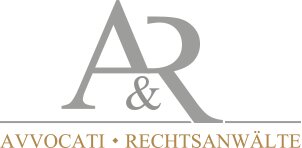Best Structured Finance Lawyers in Italy
Share your needs with us, get contacted by law firms.
Free. Takes 2 min.
Or refine your search by selecting a city:
List of the best lawyers in Italy
About Structured Finance Law in Italy
Structured finance refers to a broad area of legal and financial practice that involves complex financial instruments designed to manage risk, enhance capital, and facilitate large-scale financing activities. In Italy, structured finance typically encompasses the creation, management, and regulation of financial products such as asset-backed securities, securitizations, covered bonds, derivatives, and other innovative financial vehicles. The primary goal is often to pool financial assets, transform their risk profiles, and attract investment while complying with Italian and European regulatory frameworks.
Why You May Need a Lawyer
The rapidly changing legal landscape plus the inherent complexity of structured finance transactions in Italy mean legal counsel is essential in several situations. You may seek a lawyer if you are:
- Structuring or negotiating a securitization transaction involving Italian assets
- Participating as an investor in asset-backed securities or covered bonds
- Ensuring compliance with Italian and EU securities laws and financial regulations
- Dealing with cross-border financing arrangements that touch Italian entities or assets
- Advising on bankruptcy risk and creditor protections under Italian law
- Managing disputes or litigation arising from structured products
- Seeking assistance with licensing, documentation, or regulatory filings with Italian authorities
Given these scenarios, having a lawyer with structured finance expertise is crucial for mitigating risks, ensuring proper documentation, and navigating highly technical regulations.
Local Laws Overview
Structured finance transactions in Italy are shaped by a complex mix of domestic and European laws. The legal framework includes:
- Securitization Law: The cornerstone is Law No. 130 of 1999, which provides specific rules for the securitization of assets in Italy, including registration requirements, segregation of assets, responsibility of servicers, and investor protections.
- Banking and Financial Regulation: The Italian Banking Act and related Bank of Italy regulations set requirements for financial intermediaries, including governance, risk management, and transparency obligations.
- EU Regulations: EU-level frameworks such as the Securitisation Regulation, CRR (Capital Requirements Regulation), and MiFID II (Markets in Financial Instruments Directive) directly affect Italian transactions, particularly in relation to risk retention, disclosure, and investor protection.
- Tax Law: Structured finance deals often require specialist advice on the tax treatment of securities, transactions, and related cash flows under Italian law.
- Insolvency Law: The recent reform of the Italian Insolvency Code has a direct impact on creditor rights, asset segregation, and bankruptcy remoteness in structured deals.
Compliance with these legal areas is not optional. Ignorance or misinterpretation can result in penalties, invalid transactions, or loss of investor protection.
Frequently Asked Questions
What is securitization, and how is it regulated in Italy?
Securitization is a process where financial assets such as loans or receivables are pooled and converted into securities sold to investors. In Italy, this is primarily governed by Law No. 130 of 1999, requiring specific structures, independent service providers, and dedicated protections for investors.
Do I need a license to carry out a structured finance transaction in Italy?
Usually, only authorized banks or financial intermediaries licensed by the Bank of Italy can engage in many types of structured finance activities. Legal advice can clarify whether your transaction requires licensing or oversight.
What are asset-backed securities (ABS), and are they common in Italy?
ABS are securities backed by pools of underlying assets, such as mortgages, loans, or receivables. They are a common component of Italian structured finance, with a detailed regulatory framework ensuring investor protection and risk segregation.
How does Italian law protect investors in structured finance deals?
Investor protection is established through mandatory disclosure, asset segregation, independent servicing, and oversight by regulatory authorities such as the Bank of Italy and Consob.
What are the main tax considerations in Italian structured finance?
Taxation can affect interest payments, capital gains, and transaction costs. In Italy, special tax regimes may apply to securitization vehicles, but each transaction needs specific advice to optimize tax efficiency and avoid unexpected liabilities.
How are cross-border structured finance deals handled under Italian law?
Cross-border deals must comply with both Italian and EU regulations, and may require dual legal opinions, careful negotiation of governing law clauses, and coordination with foreign legal counsel for seamless execution.
What reporting and disclosure obligations exist for structured finance participants?
Parties must provide detailed periodic reports and disclosures to authorities and investors, especially regarding performance data, risk metrics, and changes to the underlying assets or transaction structure.
How does bankruptcy law affect structured finance in Italy?
Recent reforms aim to clarify the bankruptcy remoteness of securitized assets, ensuring they are shielded from the insolvency of originators and intermediaries. However, structuring advice is crucial as improper design can lead to asset clawbacks or litigation.
What is the role of the Bank of Italy in structured finance?
The Bank of Italy supervises certain financial intermediaries, approves specific transaction structures, enforces compliance, and can intervene if there are breaches of prudential or conduct requirements.
How can I verify if my structured finance transaction is compliant?
Legal due diligence, review by experts, and prior consultation with regulatory authorities are critical steps. Professional legal assistance is the best way to ensure compliance with all applicable laws and regulations.
Additional Resources
Several organizations and resources can support those seeking legal information or assistance in structured finance in Italy:
- The Bank of Italy: Supervises financial institutions and provides regulations and guidance on market conduct.
- Consob (Commissione Nazionale per le Società e la Borsa): Regulates securities markets and investor transparency.
- Ministry of Economy and Finance: Issues policies and secondary regulations affecting financial transactions.
- OIC (Organismo Italiano di Contabilità): Sets accounting standards impacting financial reporting in structured transactions.
- Professional Associations: Such as the Italian Bar Association and financial market associations, can help locate qualified legal advisors.
Specialist law firms and consultancy agencies can also provide tailored legal opinions and transaction support for structured finance matters.
Next Steps
If you are considering involvement in a structured finance transaction or require legal guidance in Italy, the following steps can help you move forward:
- Define your objectives and gather all relevant documentation related to the transaction or financing need.
- Identify professional legal advisors with expertise in Italian and international structured finance law.
- Arrange an initial consultation to clarify your situation, objectives, and any potential legal risks or requirements.
- Cooperate with your legal counsel to ensure thorough due diligence, regulatory compliance, and optimal transaction structure.
- Regularly monitor legal and regulatory developments affecting structured finance to adapt your strategies or compliance plan as needed.
Structured finance law in Italy is a highly specialized field - seeking qualified legal counsel early on will help safeguard your interests and ensure smooth, compliant transactions.
Lawzana helps you find the best lawyers and law firms in Italy through a curated and pre-screened list of qualified legal professionals. Our platform offers rankings and detailed profiles of attorneys and law firms, allowing you to compare based on practice areas, including Structured Finance, experience, and client feedback.
Each profile includes a description of the firm's areas of practice, client reviews, team members and partners, year of establishment, spoken languages, office locations, contact information, social media presence, and any published articles or resources. Most firms on our platform speak English and are experienced in both local and international legal matters.
Get a quote from top-rated law firms in Italy — quickly, securely, and without unnecessary hassle.
Disclaimer:
The information provided on this page is for general informational purposes only and does not constitute legal advice. While we strive to ensure the accuracy and relevance of the content, legal information may change over time, and interpretations of the law can vary. You should always consult with a qualified legal professional for advice specific to your situation.
We disclaim all liability for actions taken or not taken based on the content of this page. If you believe any information is incorrect or outdated, please contact us, and we will review and update it where appropriate.
Browse structured finance law firms by city in Italy
Refine your search by selecting a city.
















